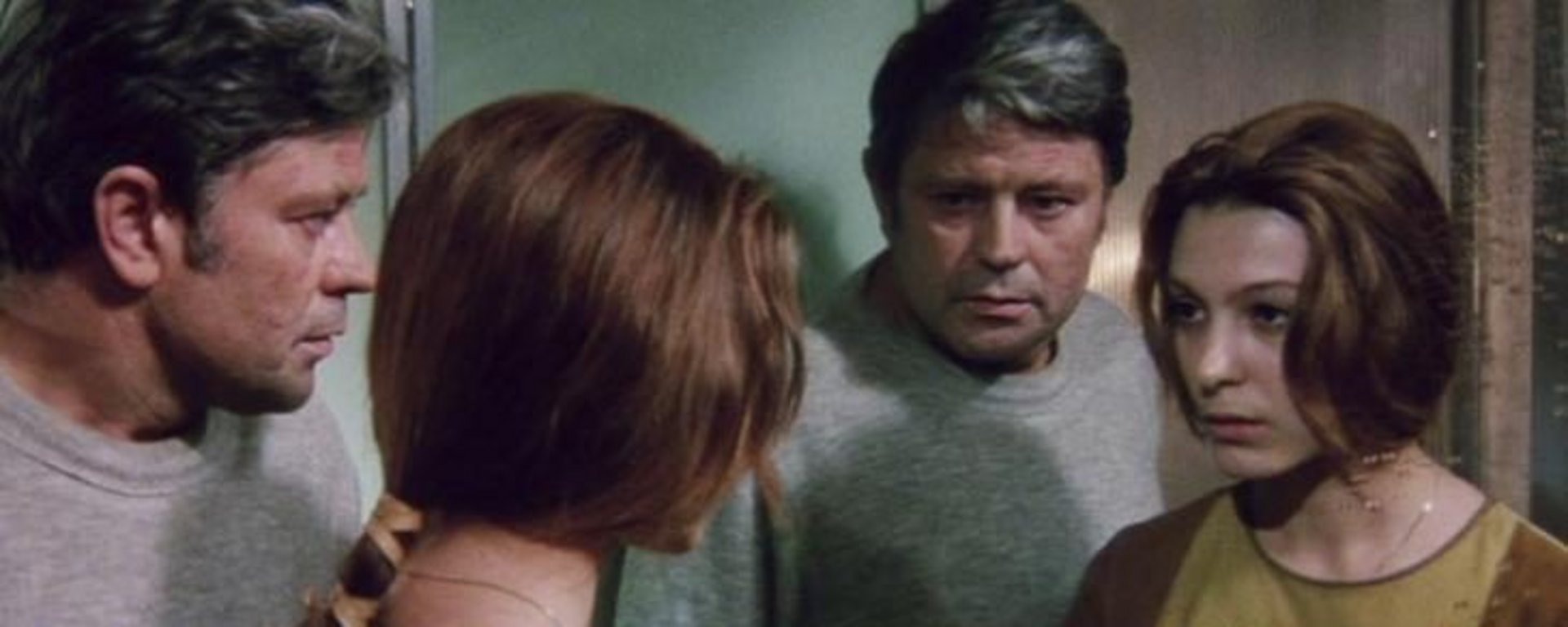
Solaris
Solaris is a 1972 film from the acclaimed Soviet director Andrei Tarkovsky (Andrei Rublev, Stalker) and its history with the BBFC provides an insight into how classification issues are balanced with an appreciation of, and regard for, a particular work’s appeal and address.
It tells the story of a Soviet space mission that has placed a station above a planet called Solaris. The scientists on board have for years been observing an ocean on the planet’s surface which they have come to believe is a living thing, capable of thought - but disagreements between them have jeopardised the future of the mission. A psychologist, Kris, is sent up to the station to assess the men and to advise if the mission should continue, and he finds the place in disarray with one of the scientists having committed suicide whilst the remaining two exhibit strange and unpredictable behaviour.
Kris – a man of rational analysis who sees no place for human emotion in doing his job - eventually finds out why: the planet’s ocean is capable of keying-in to the deepest thoughts, memories and feelings of humans and to then replicate figures from their past who appear on the station as reminders of things they may wish to forget or to keep hidden. Kris’s ‘visitor’ is a version of his wife Hari who had killed herself a decade before. Startled by the initial experience, Kris tries to rid himself of her presence by ejecting her from the station, but another version returns the next day forcing Kris to confront his own suppressed guilt and to acknowledge that for all Man’s efforts to control his (and other) inner and outer worlds, it is the unfathomable mysteries of life and love that prevail.
With its space station setting, Solaris has often been compared with 2001: A Space Odyssey and seen as a part of the science-fiction genre. Like Kubrick, Tarkovsky attempts to explore some deep and weighty subjects and Solaris conducts that exploration in a manner that suggests it requires mature thought and understanding as, through its deliberate pacing and long, wordless takes, it addresses issues of memory, guilt, mortality and spirituality.
The film was made in the Russian language and is presented with English subtitles, and is often referred to as a meditation on the human condition.
It is a resolutely ‘arthouse’ film that is hardly likely to appeal to a children’s audience, and yet it has been classified at a notional ‘junior category’ – the old A certificate on film in 1973 (an advisory category cautioning parents that the film may be unsuitable for young children and the equivalent of today’s PG for theatrical works) and PG on video in 1991.
In terms of classification issues, it contains some references to suicide, sight of the replicant Hari in the aftermath of attempting to kill herself by drinking liquid nitrogen (although the act itself is not seen) and some moderately disturbing moments when Kris’s spacesuit catches fire or when Hari tries to burst through a metal door cutting herself in the process. These sequences in themselves were not felt to go beyond what was permitted by the BBFC’s policies at the time of either the film or video classifications, although it should be noted that in either case the current 12A/12 category was not available and it could be argued that a category addressing young teenagers would be more appropriate for the film.
The BBFC did not feel inclined to place too heavy a restriction on the work which illustrates one of the overriding principles of modern classification that was implicit in 1973 and 1991, and is now enshrined in the BBFC Guidelines: ‘Works should be allowed to reach the widest audience that is appropriate for their […] treatment’. The BBFC recognises that not all films which fit within the U or PG Guidelines are intended for a children’s audience. So, provided that the handling of issues allows it, there is no reason why difficult or mature works cannot be placed at the lower categories. An example of this would be a serious documentary feature such as An Inconvenient Truth, that requires a mature knowledge and understanding of the issues surrounding global warming - but was passed at U.
The most recent classification of Solaris in 1991 happened before the publication of the BBFC Guidelines in 2000 and it is interesting to speculate what category it would now receive in the light of those Guidelines. That speculation can only be settled if the work was to be resubmitted for a new film or DVD classification since the BBFC has no power to arbitrarily revisit older works in order to reconsider their classifications.
A remake of Solaris, directed by Steven Soderbergh and starring George Clooney, was released in 2002 and was classified 12A, with BBFCinsight of 'Contains a single use of strong language and a moderate sex scene'.